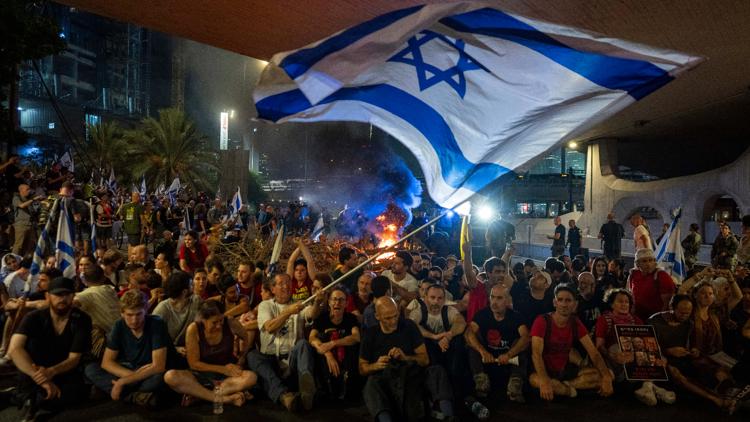
Pressure Mounts for Cease-Fire Deal in Gaza
Israeli Prime Minister Benjamin Netanyahu faces mounting pressure to reach a cease-fire deal in Gaza after nearly 11 months of fighting. This comes in the wake of hundreds of thousands of Israelis protesting and going on strike, along with U.S. President Joe Biden urging Netanyahu to do more to end the conflict.
A Sticking Point in Talks
Netanyahu’s demand for continued Israeli control of the Philadelphi corridor, which borders Egypt and is alleged to be a route for Hamas to smuggle weapons, has become a major obstacle in the negotiations. Despite denials from Egypt and Hamas, Netanyahu insists on this demand, calling it vital to preventing Hamas from rearming.
The public outcry in Israel has been intense, with families of hostages and the wider population blaming Netanyahu for the failure to secure the safe return of the hostages. Large protests and a general strike have rocked the country, underscoring the urgency of the situation.
Impatience from the United States
President Biden has expressed impatience with the ongoing conflict, stating that Netanyahu needs to do more to reach a deal. U.S. mediators are working diligently to broker a cease-fire agreement, with hopes of a resolution in the near future.
Tensions and Opposition
Despite some support for Netanyahu’s tough stance against Hamas, there are growing tensions within Israel over the handling of the negotiations. Security officials and Defense Minister Yoav Gallant have clashed with Netanyahu over the direction of the cease-fire talks.
The situation remains complex and delicate, with both sides digging in their heels on key issues. The fate of the hostages hangs in the balance as the world watches and pressures for a peaceful resolution to the conflict.




